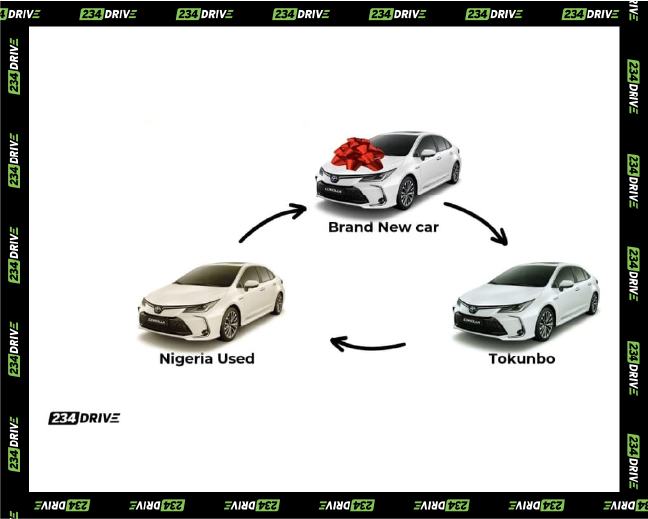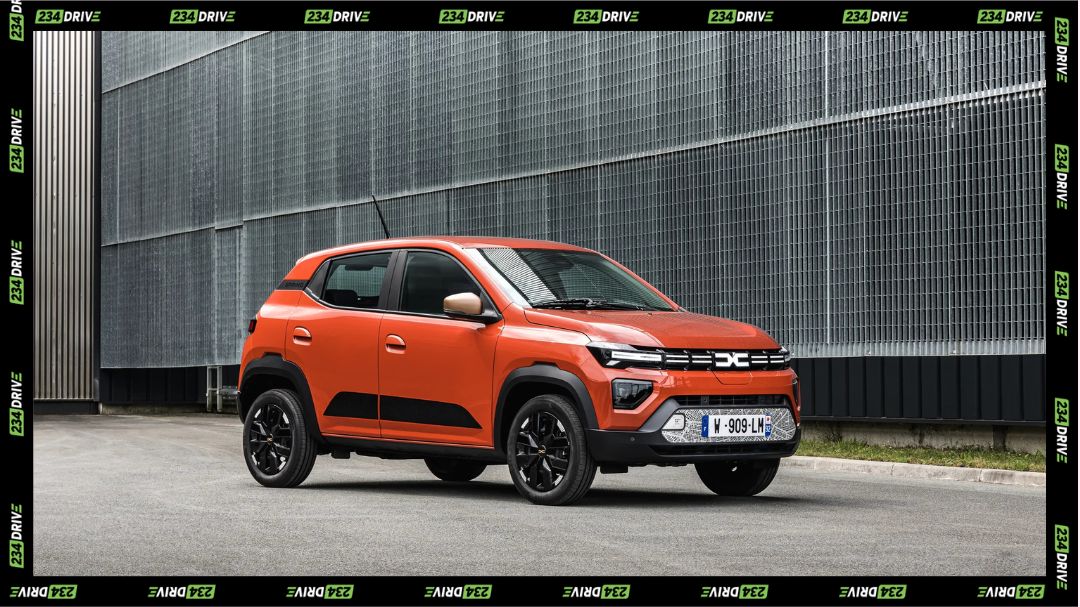Don’t use your money to buy problem.
The probability of randomly picking seven brand new cars on the road at the same time, in Nigeria, is nearly zero. Fairly used vehicles also known as “Tokunbo” are shipped into the country, sold, used, and then recycled to enter a new market: “Naija used cars.” The country is saturated with Naija used cars because they are more pocket-friendly and can be a good buy if you play your cards right. You might be lucky and hit the jackpot!
You know luck is a 50/50 thing, but I’m here to raise your chances of finding a decent Naija used car to about 75% which is great the remaining 25% we will leave to chance and geographical area. Stick with me. Buying a Naija used car isn’t as straightforward as it seems— even car enthusiasts can fall victim to purchasing a lemon, let alone someone who isn’t familiar with cars. It’s like how teachers give you AOC (Area Of Concentration) to make exam preparation easier; I’ll provide you with insights to buying a Naija used car so you don’t end up using your money to buy problem.
How long was the talking stage?
Before anything else, how well do you know the car you’re actively looking to buy? Going ahead to purchase a car without thoroughly understanding the pros and cons of that particular model is akin to setting yourself up for heartbreak—except this time, your heart might not feel it, but your wallet certainly will. It’s like getting to know someone you’re interested in before committing to a relationship. Conduct thorough research on the car you’re considering. Talk to people who have owned it before: What common issues did they face? How much did they spend on maintenance? What are the costs of replacement parts? Gather as much information as possible about the car before stepping into the dealership. This knowledge will empower you to make a more informed decision and avoid potential pitfalls down the road.
I’m not the owner, i’m the brother of the owner
Lack of a credible ownership record isn’t a good sign when looking to buy a ‘naija used car’. Once you sense the dealer pointing finger and shifting ownership from one person to another, or you hear stories like “I’m not the owner, I’m the brother of the owner,” please dust your shoes and run! You’re likely purchasing a stolen car. The penalty if an offender is caught with a stolen car is imprisonment for not less than five years but not more than seven years without the option of a fine. Also, the absence of proper legal documents, particularly in higher-end cars, raises serious red flags. Buying a vehicle without these documents can lead to potential legal and ownership issues down the line, making it a risky investment that should be avoided at all costs.
Clean engine? What are you hiding
A recently cleaned-out engine bay could be a sign that the seller is trying to conceal leaks or other issues with the engine. It’s often better to see the engine in its natural state, even if it’s dirty and muddy, to get a true sense of its condition. When inspecting the engine area, pay attention to taped wires or makeshift repairs in the engine bay. These could indicate that the car has undergone rewiring, which might lead to electrical faults or other problems down the line.
I came to inspect a car not a chimney
Serious smoking from a car’s exhaust typically indicates significant issues with the engine or its components. It could suggest that the engine is burning engine oil, possibly due to worn piston rings, valve seals, or a faulty PCV system leading to excessive oil consumption. On the other hand, if the smoke appears white, it might indicate the engine is burning coolant, which could result from a blown head gasket, cracked cylinder head, or a cracked engine block. Alternatively, black smoke could signify an overly rich fuel-air mixture, often caused by faulty fuel injectors, malfunctioning sensors such as the mass airflow sensor or oxygen sensor, a clogged air filter, or issues with the fuel pressure regulator. The potential problems are numerous, and the best advice is to flee.
There’s nothing like an Ex-Kabu Kabu
A car previously used as a commercial vehicle has undoubtedly undergone considerable wear and tear, no matter how well it was maintained. Buying such a vehicle isn’t recommended. It’s like when some football players return from injury unable to match their previous performance levels. You can’t expect peak performance from a car that has endured the rough demands of tough roads. It may handle regular back-and-forth journeys fine, but don’t try taking sharp turns. Also, keep a few mechanic friends close—they’ll come in handy from time to time.
Find the gaps
If you notice panel gaps between the bonnet, doors, or trunk of a car, it’s a clear sign that the vehicle has been in an accident in the past, resulting in parts being replaced. Such accidents can lead to underlying issues that may not have surfaced yet. It’s important to be cautious and avoid purchasing a car that has been involved in an accident.
Don’t end up as the panel beater’s top caller
Excessive rust is something you shouldn’t overlook when buying a Naija used car. Check for welds too, as they may indicate prior rust repairs. This suggests the car has endured harsh conditions or flooding. The challenge with rust is that it tends to spread, and continually welding to patch it up exposes more areas to corrosion. Moreover, the welding material used might not match the original quality from the manufacturer. Ignoring rust issues means you’ll likely be visiting a panel beater frequently.
The list of things to look out for is inexhaustible, but with these arsenals I’ve given you, you’re definitely fully armoured to navigate your way through the hands of corny dealers and the sketchy automobile market.
If you’re looking to get a new car or need advice on your current one, you can reach out to us at cars@234drive.com.










